
It is a sultry evening in Delhi and we are at the Alliance Francaise de Delhi for the launch of French-American economist and Nobel winner Esther Duflo and illustrator Cheyenne Olivier's latest book, Poor Economics for Kids, consisting of stories that aim to sensitise children to the world around them. Duflo, dressed simply in a red kurta, has an effervescence about her as she endeavours to answer the questions of her young audience. Like that of a boy of around 12, who refers to her Nobel speech about wanting to make people understand poverty. "By writing this book, have you achieved it?" he asks. Duflo is patient yet encouraging, smilingly explaining that the job of eradicating poverty can never be fully over, and so she will continue to write more books and work towards it.
But the question that really intrigues her is one by a librarian in the back. If one has not experienced poverty, how can they connect with the story? It is a good question, one which harks back to Duflo's own childhood. She never knew poverty, for she comes from a privileged background. Her parents a paediatrician and a maths professorraised her in a western suburb of Paris. All her knowledge of the underprivileged came from her mother, who volunteered across the world and worked closely with children who were victims of war. "I was amazed and somewhat awed by my luck: how come I, Esther, get to be born in this middle-class, intellectual family, with loving parents, decent schools, and all the food and books I need, while some other kids are born in Congo, in the middle of a war, and are forced to carry a Kalashnikov to fight?" she asks in an essay written when she won the Nobel Prize for Economics, along with her husband, Abhijit Banerjee, and colleague Michael Kremer, in 2019.
This story is from the August 11, 2024 edition of THE WEEK India.
Start your 7-day Magzter GOLD free trial to access thousands of curated premium stories, and 9,000+ magazines and newspapers.
Already a subscriber ? Sign In
This story is from the August 11, 2024 edition of THE WEEK India.
Start your 7-day Magzter GOLD free trial to access thousands of curated premium stories, and 9,000+ magazines and newspapers.
Already a subscriber? Sign In

Doctor's doctors
Internists deal with prevention, diagnosis and treatment of all kinds of diseases, while also coordinating with doctors across specialties

WORK THIS OUT!
What is the true cost of a 90-hour workweek? Reduced productivity, mental health issues and severe health risks, say doctors
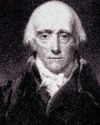
The experience of oppression
The British enacted several laws that might appear liberal, only to then veto the invocation of progressive measures. Nevertheless, these milestones guided the founding fathers in conceiving and creating the Constitution of India
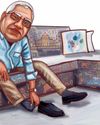
One, two, buckle my shoe!
“Darling,” I said to my life companion of more years than I care to remember, “Do you think there is any correlation between pain in the feet and attending prayer meetings?”“You really are a stupid old man!” said the light of my life. “Can’t you think of anything more bizarre so late at night?”

A helping hand
Over the past year, Imaginarium has placed 3D-printed parts in space, in human bodies, in oil fields in the Middle East, and as drones on the Indian border
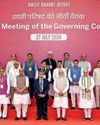
Fading federalism
One of the most visible indicators of the erosion of state autonomy is the diminishing financial independence of states
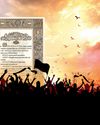
FOUNDING MOTHERS OF THE CONSTITUTION
THEIR CONTRIBUTION IN THE MAKING OF THE REPUBLIC REMAINS EXEMPLARY AND INSPIRING

Value every breath
VO2 max is the best way to measure fitness and predict life expectancy
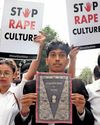
Statutes of unity
The Constitution reminds us that national oneness comes through addressing inequalities, not enforcing uniformity
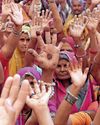
Incomplete equality
Equal marriage rights is one of the last bastions of patriarchy and to dismantle it, the recognition of marital rape as an offence is non-negotiable